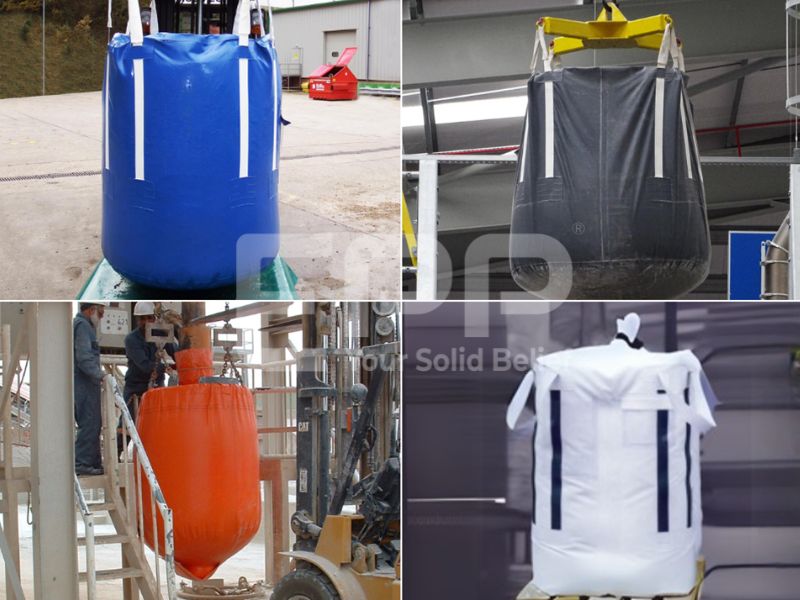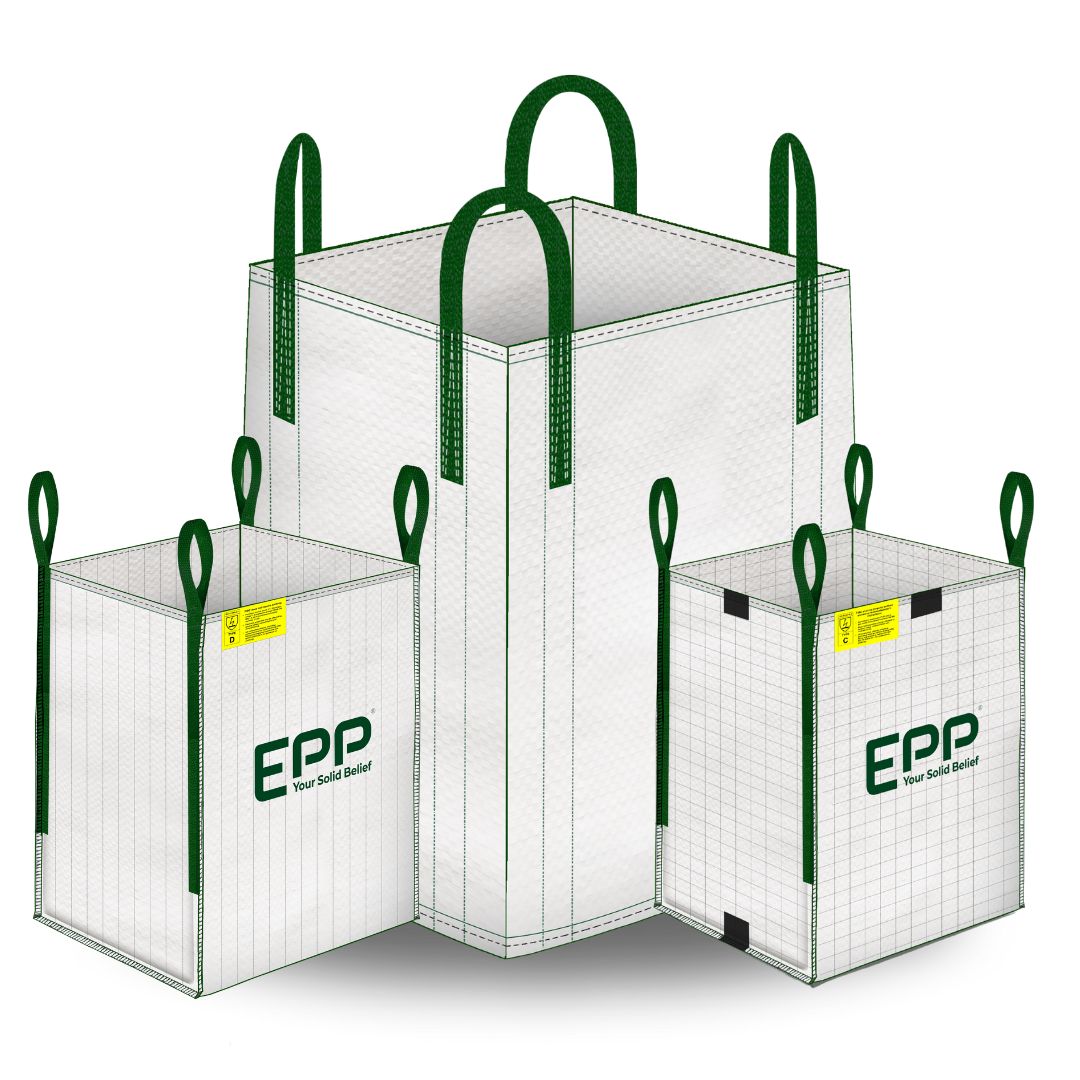Bulk bags, also known as jumbo bags or flexible intermediate bulk containers (FIBCs), are essential in various industries for transporting and storing bulk materials. Selecting the right bulk bag materials is crucial for ensuring durability, safety, and cost-effectiveness. In this article, we will explore the different types of bulk bag materials, their advantages, and factors to consider when choosing the perfect bag for your needs.
Advantages of Bulk Bags
Bulk bags offer numerous advantages over traditional packaging methods. Here are some key benefits:
Efficiency: FIBC bags allow for the transportation of large quantities of materials at once, reducing the number of trips required and saving time and labor costs.
Cost-Effectiveness: Due to their ability to hold significant amounts of product, bulk bags reduce packaging and shipping costs, making them a cost-effective solution for businesses.
Versatility: Available in various sizes and configurations, bulk bags can be customized to meet specific needs, accommodating a wide range of materials such as grains, chemicals, and aggregates.
Durability: Made from robust materials, bulk bags can withstand rough handling and environmental conditions, ensuring the safe transport of materials.
Sustainability: Many bulk bags are made from recyclable or biodegradable materials, contributing to environmentally friendly practices in various industries.
Exploring Different Types of Bulk Bag Materials
When it comes to bulk bag materials, various options are available, each with unique characteristics and advantages. Below, we explore some of the most common materials used in manufacturing bulk bags.
Polypropylene

Polypropylene (PP) is the most widely used material for bulk bags due to its outstanding properties.
- Lightweight and Strong: Polypropylene is known for its high tensile strength, allowing it to carry heavy loads without tearing or breaking.
- Chemical Resistance: PP exhibits excellent resistance to chemicals, making it suitable for transporting various materials, including fertilizers and industrial chemicals.
- Moisture Resistance: This material is resistant to moisture, helping to protect the contents from damage.
Polypropylene bulk bags are commonly used in agriculture, construction, and manufacturing industries for transporting grains, aggregates, and chemicals. EPP Vietnam Co., Ltd. offers a range of polypropylene bulk bags tailored to meet industry demands.
PVC

Polyvinyl chloride (PVC) is another popular material among other Bulk Bag Materials, particularly in specific applications where additional properties are required.
- Durability: PVC is known for its toughness and can withstand harsh environmental conditions.
- Waterproof: This material provides excellent moisture protection, making it ideal for wet or humid environments.
- Flexibility: PVC bags maintain their shape and integrity under various conditions.
PVC bulk bags are often used in the chemical industry, as well as for transporting wet materials, ensuring that contents remain safe and dry.
Recycled Materials
Recycled materials are becoming increasingly popular in the production of bulk bags, reflecting a growing commitment to sustainability.
- Eco-Friendly: Made from post-consumer or post-industrial waste, recycled bulk bags reduce the environmental impact associated with new material production.
- Cost-Effective: Utilizing recycled materials often lowers production costs, making these bags an economical choice.
Recycled bulk bags can be used in various industries, including agriculture and manufacturing, providing a sustainable solution for businesses looking to minimize their environmental footprint.
Additives
To enhance the performance of bulk bags, various additives can be incorporated into the manufacturing process. These include:
- UV Stabilizers: Essential for bulk bags that will be exposed to sunlight, UV stabilizers prevent degradation and prolong the bag’s lifespan.
- Carbon Fiber: Used in Type C FIBC bags, carbon fiber provides conductive properties, making these bags suitable for transporting flammable materials.
- Anti-Static Additives: These additives are crucial for preventing electrostatic discharge in type D bags, particularly in industries handling powders and chemicals.
Factors to Consider When Choosing Bulk Bag Materials
Selecting the right material for bulk bags involves considering several factors:
- Load Capacity: Ensure the material can handle the weight of the intended contents without compromising safety.
- Environmental Conditions: Consider the conditions the bags will be exposed to, such as moisture, chemicals, or sunlight, to choose a material that offers the necessary protection.
- Industry Requirements: Different industries have specific regulations and standards, so it’s essential to select a material that complies with these requirements.
- Cost-Effectiveness: Evaluate the cost of the bulk bags in relation to their durability and the specific needs of your operation.
- Sustainability: If sustainability is a priority, consider bulk bags made from recycled or biodegradable materials to reduce environmental impact.
Some Common Types of Bulk Bags

Bulk bags come in various types, each designed for specific applications. Here are a few common types:
- Standard FIBC Bags: These are general-purpose bulk bags used across various industries for transporting dry bulk materials.
- Type A Bags: These bags are made from non-conductive materials and are suitable for non-flammable products.
- Type B Bags: Designed to reduce the risk of sparks, Type B bags are suitable for transporting flammable products.
- Type C Bags: These bags are made with conductive materials and are ideal for transporting flammable powders in hazardous environments.
- Type D Bags: Similar to Type C, these bags are designed for use in explosive environments and provide anti-static properties.
Frequently Asked Questions (FAQs)
Q1: What are bulk bags?
Bulk bags, also known as jumbo bags or FIBCs, are large bags designed for the storage and transportation of bulk materials. They are made from various materials, including polypropylene and PVC.
Q2: What are the advantages of using bulk bags?
Bulk bags offer efficiency, cost-effectiveness, versatility, durability, and sustainability, making them an excellent choice for transporting a wide range of materials.
Q3: How do I choose the right bulk bag for my needs?
Consider factors such as load capacity, environmental conditions, industry requirements, cost-effectiveness, and sustainability when selecting bulk bag materials.
Q4: Can bulk bags be recycled?
Yes, many bulk bags can be recycled, especially those made from recyclable materials, contributing to sustainable practices.
Conclusion
In conclusion, understanding the different types of bulk bag materials is essential for selecting the right option for your business needs. Whether you choose polypropylene, PVC, recycled materials, or bags with specific additives, each material has its unique advantages and applications. By considering factors like load capacity, environmental conditions, and industry requirements, you can ensure that you select the most effective bulk bags for your operations. For tailored solutions and high-quality bulk bags, contact EPP Vietnam Co., Ltd. today!

